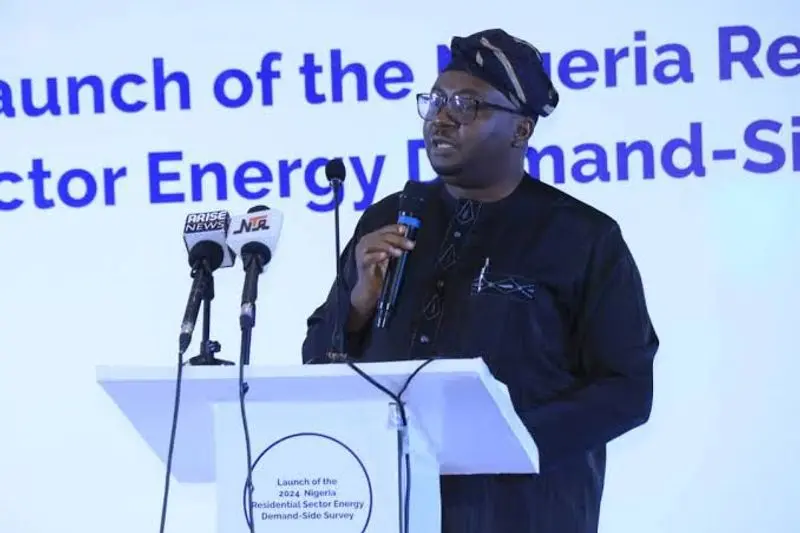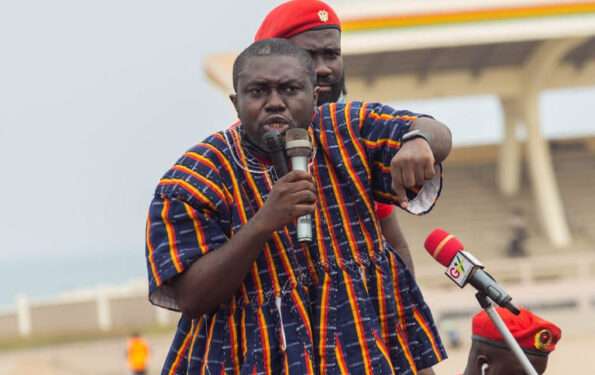The Federal Government of Nigeria, under the leadership of the Minister of Power, Mr. Adebayo Adelabu, has unveiled plans to expand the national grid’s capacity by an additional 150 megawatts (MW) before the end of the year.
This announcement comes as part of the ongoing efforts under the Presidential Power Initiative (PPI), aimed at addressing Nigeria’s persistent power challenges and modernizing its aging electricity infrastructure.
Speaking at a press briefing in Abuja, Minister Adelabu highlighted the remarkable progress achieved in the pilot phase of the PPI, which has significantly bolstered the country’s power transmission capabilities. “We have completed the pilot phase of this project up to 80%,” he stated.
“This includes the importation, installation, and commissioning of 10 power transformers and 10 mobile power substations.
“These have been imported, installed, and most have been commissioned. We have just about two left to be commissioned before the end of the year.”
Mr. Adebayo Adelabu, Minister of Power
The Minister noted that the upgrades completed under the pilot phase have already contributed to a substantial 750MW increase in the national grid’s transmission capacity.
Minister Adelabu explained that these advancements have directly contributed to improved grid stability, addressing a long-standing issue that has plagued Nigeria’s electricity supply system.
“This is why we are seeing relative stability in the grid today, which is a direct result of the pilot stage completion.
“We believe that before the end of the year, an additional 150 megawatts capacity will be added upon the full completion of the pilot phase.”
Mr. Adebayo Adelabu, Minister of Power
The Minister highlighted the critical role of the Presidential Power Initiative in addressing the country’s energy needs.
Initiated under the administration of President Muhammadu Buhari and continuing with President Bola Ahmed Tinubu’s government, the PPI seeks to transform the nation’s power sector through collaboration with international partners.
Addressing Aging Infrastructure

Nigeria’s national grid has faced recurring challenges due to aging infrastructure, insufficient maintenance, and inadequate capacity to meet growing demand.
These issues have led to frequent grid collapses, leaving many parts of the country without power for extended periods.
“When we are done with the Phase One project in transmission, the entire grid will not remain the same.
“This is a very old grid. It’s quite fragile and dilapidating. We need to revamp the entire grid to ensure stability going forward.”
Mr. Adebayo Adelabu, Minister of Power
The modernization efforts involve not only the installation of new transformers and mobile substations but also upgrades to control systems and transmission lines. These measures aim to create a more robust and resilient grid capable of accommodating increased electricity generation and distribution.
“A stable and reliable grid is fundamental to our vision of achieving universal electricity access by 2030.
“This is why we are prioritizing the modernization of our infrastructure and ensuring that we have the capacity to support our growing energy needs.”
Mr. Adebayo Adelabu, Minister of Power
Despite the progress achieved under the PPI, significant challenges remain. The implementation of has power sector reforms according to reports has been hampered by funding constraints, bureaucratic hurdles, and resistance from entrenched interests.
The country’s power distribution companies (DisCos) also face operational inefficiencies, high levels of debt, and issues with revenue collection, which further complicate efforts to improve electricity supply.
The Minister, however, expressed confidence that the government’s strategic interventions, including ongoing negotiations with international partners and stakeholders, would help address these challenges.
He called on Nigerians to support the government’s efforts and remain patient as reforms take shape. The planned expansion of the national grid by an additional 150MW represents a vital step in Nigeria’s journey toward a more reliable and efficient power sector.
While challenges persist, the progress achieved under the Presidential Power Initiative offers hope for a brighter future. As the government continues to implement reforms and invest in critical infrastructure, stakeholders are optimistic that Nigeria’s power sector will soon be able to meet the demands of its population and economy.
READ ALSO: Ghana’s Robust FDI Performance: $56.02 Million Secured in Q2 2024





















